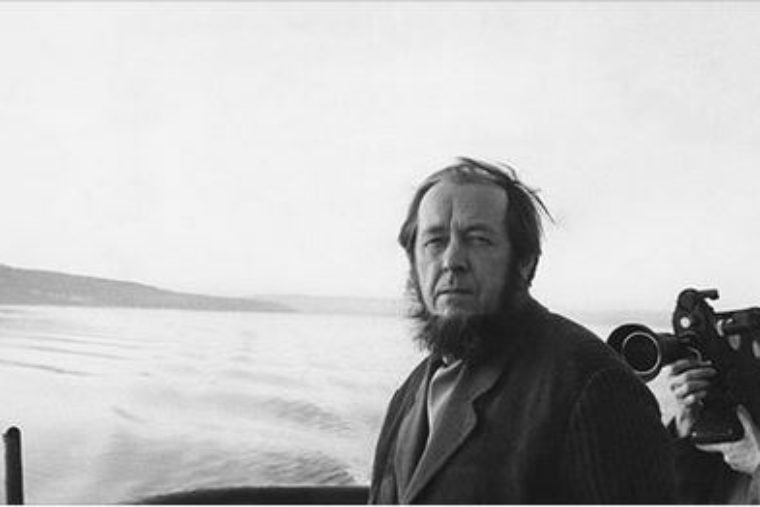I am sharing this excellent article here for a reason.
Gun control is a slippery slope to totalitarian government.
That is exactly why the United States has the Second Amendment.
In my opinion, the most important of the amendments.
December 11, 2018 marks the 100th anniversary of the birth of Aleksandr Isaievech Solzhenitsyn. A writer of immense talent and spiritual depth, the century’s greatest critic of the totalitarian immolation of liberty and human dignity, a thinker and moral witness who illumined the fate of the human soul hemmed in by barbed wire in the East, and a materialist cornucopia in the West, the mature Solzhenitsyn remained remarkably faithful to the twin imperatives of courage and truth. A modern Saint George, he slew the dragon of ideological despotism with rare eloquence, determination, and grit. For that alone, he deserves to be forever remembered.
He had two great “missions,” as he called them: to witness to those who suffered and perished in the Soviet prison-camp system (and accompanying manifestations of Communist repression); and to trace the roots of the Soviet tragedy in the great unfolding “red wheel,” especially in the February Revolution of 1917 that preceded the October Revolution later that year and made it all but inevitable. He is the author of two great “literary cathedrals,” as the Solzhenitsyn scholar Georges Nivat put it: The Gulag Archipelago and The Red Wheel, two “experiments in literary investigation” that will require decades to come to terms with in any adequate way. Many silly and even pernicious things have been written about Solzhenitsyn by those who confuse love of truth with dogmatism, and the “active struggle with evil,” as Solzhenitsyn once described it, with moral fanaticism. And among these tendentious critics are those who mock patriotism, repentance, self-limitation, and liberty under God—that is, all of Solzhenitsyn’s enduring themes and commitments.
Solzhenitsyn’s was a long but ultimately rewarding journey. Since early boyhood, he wished to become a writer. One of the key chapters of August 1914 (the first volume of The Red Wheel), depicting the Battle of Tannenberg and the suicide of General Samsonov, was already written in the fall of 1936, before Solzhenitsyn was 18. He dreaded what kind of writer he might have become without the experience of the Gulag. It was in the prison camp in 1945 and 1946, as he describes it in various interviews and in “The Ascent”—his account in the central section of The Gulag Archipelago of how the scales of ideology fell from his eyes—that he was “completely cleansed of any Marxist belief.” His cellmates helped him see the light of truth and the unparalleled mendacity of the ideological lie, the destructive illusion that evil is not inherent in the human soul, that human beings and societies can be transformed at a revolutionary stroke, and that free will is subordinate to historical necessity. Solzhenitsyn’s life is marked by this great paradox: in the camps, cold and hungry, and subject to limitless repression by camp guards and camp authorities, he recovered an appreciation of the purpose of things.
by Daniel J. Mahoney



